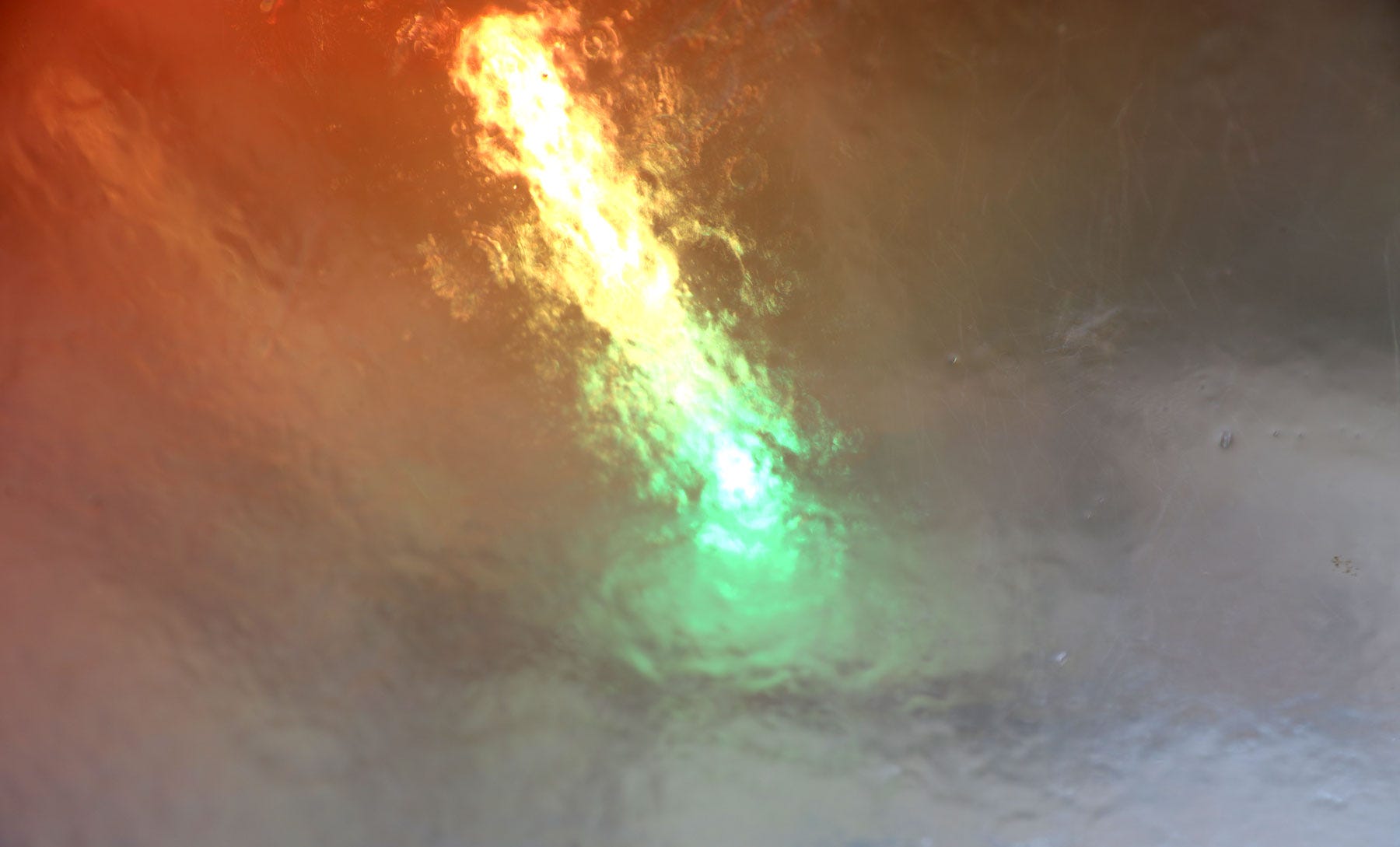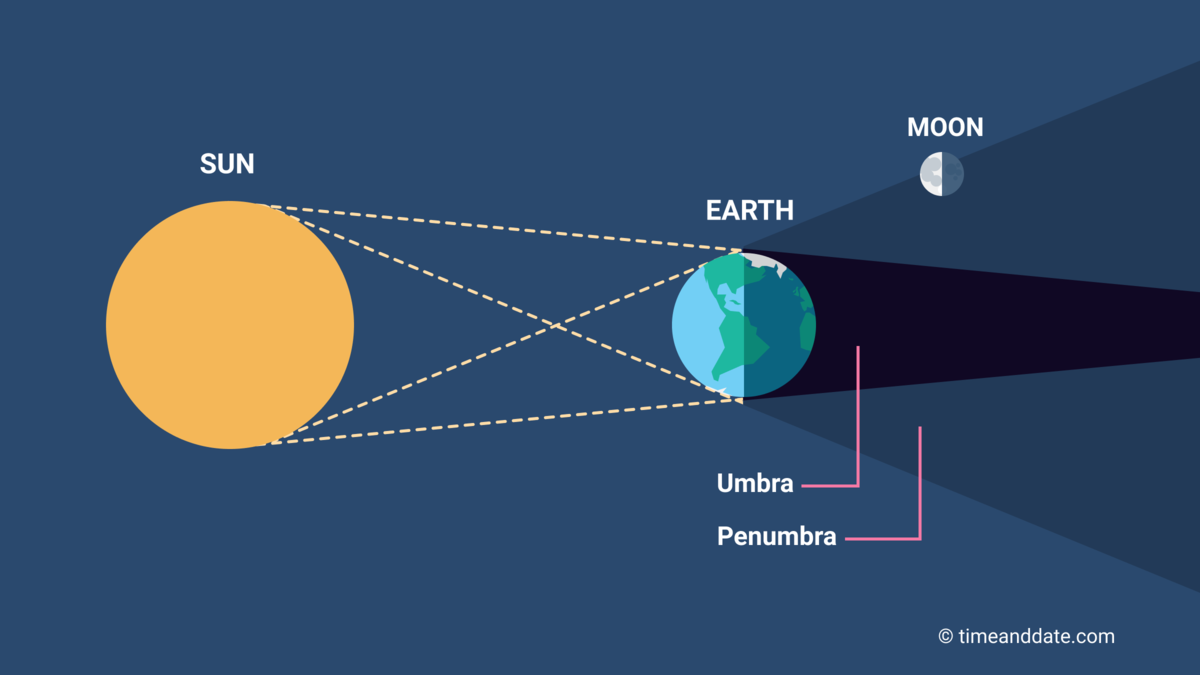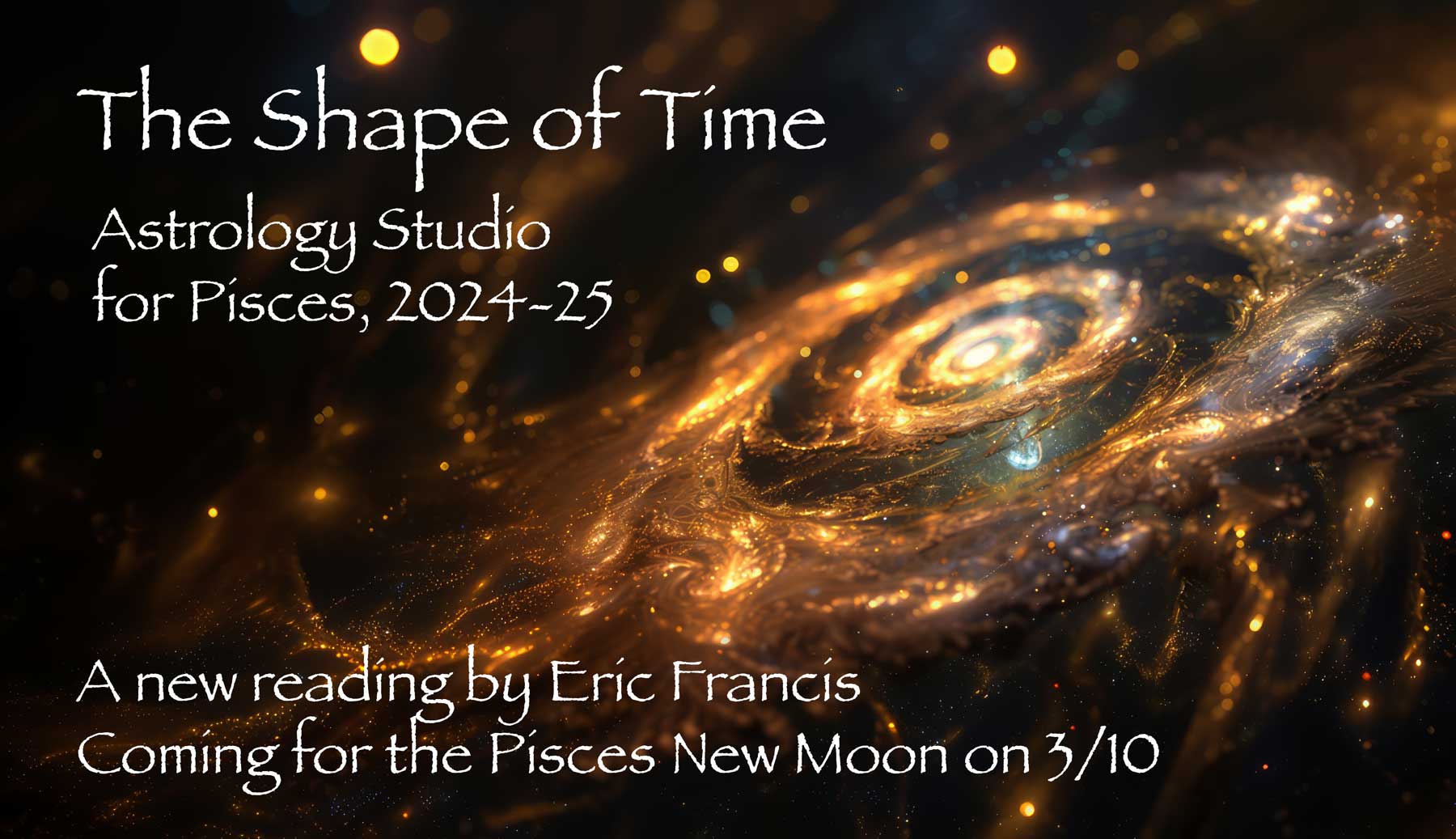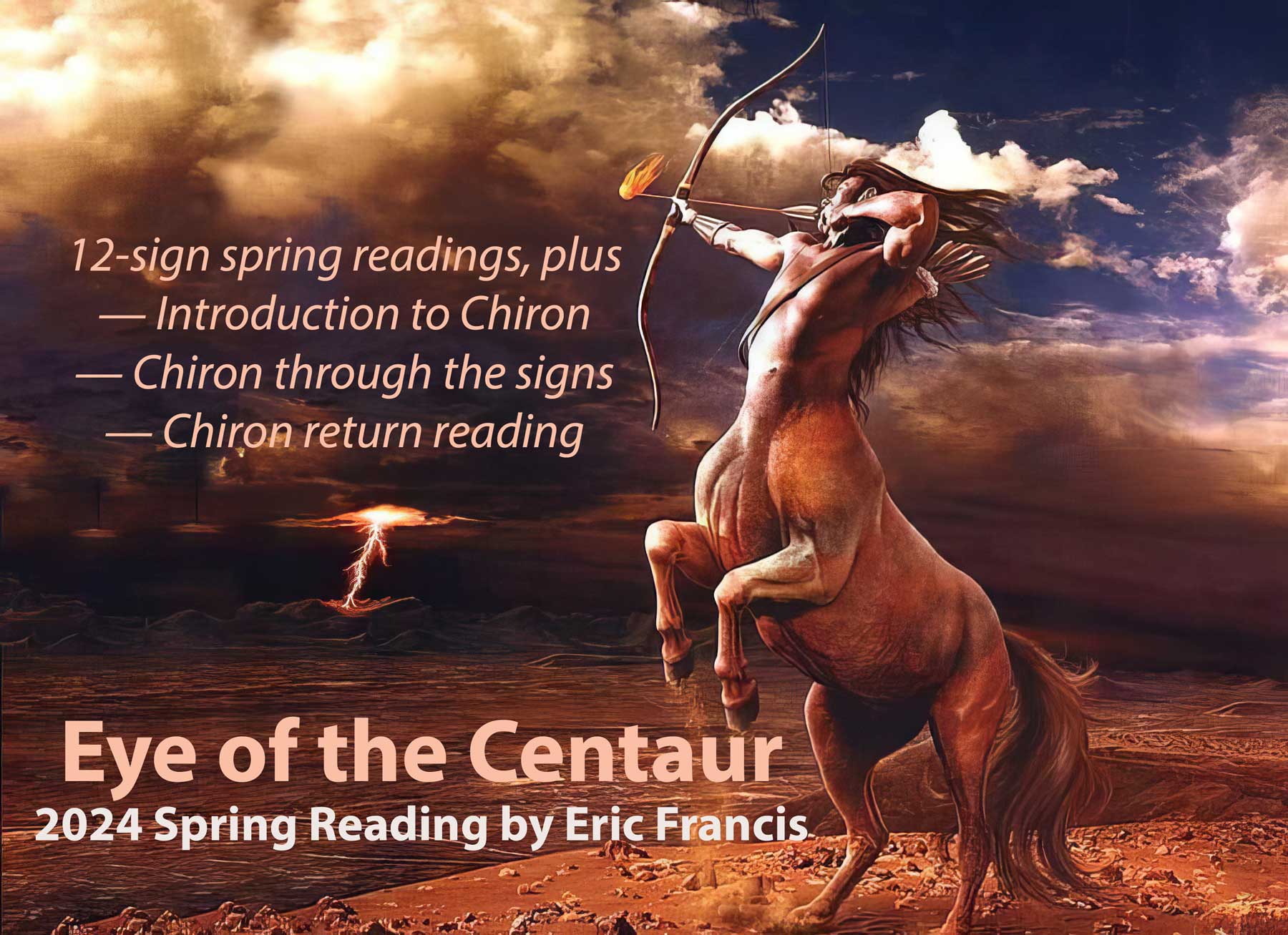
New Year events are scattered from northern hemisphere autumn (Rosh Hashanah) through March (the vernal equinox).
Before the equinox on March 19 is the Pisces New Moon on March 10, when the solar-lunar cycle comes to completion in the last sign of the zodiac.
Lately I’ve been marveling a little at how archaic it must seem to be reckoning time by celestial events here in the age of the atomic clock, network time and nanoseconds. That’s exactly the word, meaning “ancient, old-fashioned, antiquated, primitive.” It’s related to everything from architecture to archive.
Measuring natural cycles is the original and oldest form of timekeeping, leading to tracking the seasons, their use in agriculture, the invention of sundials, and Eratosthanes confirming the shape of the Earth, and its approximate size.
And along the way, astrology. And from there, astronomy.

Time Without Nature is Cold and Boring
One might wonder: why bother, when you can look at the world clock and see the time in 143 places at once?
The answer is that time delivered by computer, the breakdown of radioisotopes or on the face of a clock is cold, boring and offers little information.
If you watch time on the sky-dial, you are transported to a rich world with layers of backdrops, and stories to tell. Time is set within natural beauty.
Astrology is time as it relates to the human condition: cycles as they relate to our growth, the many ebbs and our floods throughout our lives. We walk in the moment, and yet our journey through space is set along the foggy ruins of time.
The beauty of astrology is that something we usually think of as a trivial, technical or compulsory measure of our lives, is presented as rich with ideas, images and feeling. Astrology offers context — and guides our awareness to the space that we live within.
To say “Cancer rising, Moon in Aquarius” is much more fertile to the imagination than to say 12:11 pm. But there is nothing especially creative about catching a train, which the digits will help you with much better.
Yet that is of little help in addressing the feeling that time is running out.

The Pisces New Moon
The Pisces New Moon takes place at 5 am EDT on Sunday, March 10. The last sign of the 12 is the delta of the zodiac, the place where the ocean refuses no river.
We have the image of an end, and a moment of pause. One season is about to dissolve into another, but not quite yet. And you may feel the happening that we are approaching momentous and life-changing events.
The Pisces New Moon is the first in a close sequence of events, in particular, a series of conjunctions that takes from now until May 17. Conjunctions are when one planet’s cycle passes by another one’s cycle — such as when the hands of a clock meet in the same place, only more beautiful.
I’ve been writing about these events quite a lot, and based the Eye of the Centaur spring reading on them. These take place in a concentrated cluster of the sky, in order, occurring in Pisces, Aries, Taurus and Gemini. That in itself is impressive, as if events in one area influence the next, and the next, in a kind of chain reaction.

The Matter of Control Over our Lives
Before I describe these events, I want to call out the matter of how some may associate the use of astrology with the issue of whether we control our lives. While I cannot settle this ages-old debate in one paragraph, I can tell you my view.
Astrology is about reading the chart, not what the planets make us do. The planets don’t control us any more than the time on your phone makes you late or early for a flight. The time tells you where you stand, as does astrology, in a more descriptive way.
In my view, it’s a tool for studying background influences that would otherwise be difficult to describe. Astrology offers images that can feed the imagination, and provide some fresh elements in the narrative of our lives.
What exactly is control? If anything, it’s the ability to make decisions. Decisions usually work out better if we have context and a sense of meaning. Astrology can help with both of these.
For one thing, rather than “telling you what to do,” astrology can show you some possibilities you may not have considered.
And as with tarot, astrology gives you a view of the game of life from above the field, rather than at field level. This can be a tremendous advantage. And astrology encourages a circumspect view, taking in the whole scenario from many angles.

And Now for Those Events
March 10 — Pisces New Moon — This is the chart that starts off the procession. Among the cool features of this lunation is the fact that Mercury is right on the Aries Point, the first degree of Aries. The Moon-Sun meeting in Pisces is dreamy and soft, while Mercury in Aries is bold and exciting. Mercury is very active through the spring, making a retrograde starting April 1 and showing up in the total solar eclipse chart in grand style.
The March 10 New Moon is conjunct an outer planet called Teharonhiawako, who is the Iroquois (specifically Mohawk) “son of the sky” and creator of maize — a staple food of the Native Americans.
The theme is fecundity, new growth and abundance.
Odd Similarity to the Sedna Myth
There is a version of the myth where the central figure is called Tekawerahkwa, who is a fertility goddess. According to one source, “From Tekawerahkwa’s body parts grow various crops: the spirits of the corn, beans, and squash come from her breasts, hands, and navel respectively; sunflowers from her legs; strawberries from her heart; tobacco from her head; and purple potatoes or sunchokes from her feet.”
Astute readers will notice the similarity to the story of Sedna, the Inuit goddess who sacrifices her body to feed the people — only she creates whales, seals, porpoises, and other sea-creatures that provide both food and fur to keep warm.
From this same tradition, there is a myth called, “The Girl Was Not Satisfied,” which also resembles the story of Sedna.
The New Moon is followed nine days later by the vernal equinox, and then by the next event — a Full Moon eclipse.

March 25 — Penumbral Lunar Eclipse in Libra — My favorite kind of lunar eclipse, as the Moon moves through the outer shadow of the Earth, appearing to dim rather than go out. You can sense the dimensionality of the solar system and see how close it is to us. The eclipse will be visible from all of North America. This is the Full Moon corresponding to the next event…
April 8 — Total Solar Eclipse in Aries — This eclipse is conjunct Chiron to the arc minute, which is impossible except that it’s not. This eclipse sails northeasterly from Mexico, across Texas, through Arkansas and Missouri, into Indiana, then up through New York, New England and Canada.
In Aries, it’s a profound self-actualization event: a call to wake up to yourself. One of the defining features of this event is another cameo by Mercury, which will be retrograde and exactly conjunct Eris. This is an invitation to remember who you were before you got lost in the digital environment.
You can still find your way back to yourself, and this chart describes how. So, too, do my Eye of the Centaur readings, which are based primarily on this event.
April 20 — Jupiter Conjunct Uranus in Taurus — This would be exciting all by itself, except it’s set in the context of events moving with great momentum. Uranus has been in Taurus for about six years, shaking things up on many fronts, and this is the peak. Jupiter enlarges whatever it touches and opens up the light like a prism.
Last year I forecast (something I usually don’t do) a bull run in the cryptocurrency market, which is happening, and which I think will continue. But this event will bring far more than financial news; it’s going to arrive with a fresh outlook and anything but a “silent spring.”

April 28 — Sedna enters Gemini.
May 27 — Jupiter Conjunct Sedna in Gemini — Sedna, a small planet orbiting our Sun, has not been in Gemini for 11,400 or so years — back when humans were starting to form villages. In tandem with Pluto in Aquarius, these two air sign events mark a shift in the mental environment.
Pluto in Aquarius is the collective environment as described by digital consciousness, and the patterns we all share; Sedna in Gemini is the personal, interior environment. We need to understand where we are, who we are in this overwhelming environment and why we feel the way that we do.
We are not quite getting it yet — how all of the chaos in society and loss of sense of being and the free-floating rage and the sense of meaningless are all part effects of overexposure to digital technology.
I’ll be developing this theme in a series of articles and podcasts over the next couple of months as the conjunction gets closer.
Meanwhile, the Pisces New Moon is coming, and encouraging some deep and sincere reflection.
With love,

I focus these events for Pisces in the new Astrology Studio, coming Saturday.
I put all of this into a personal context for all 12 signs in Eye of the Centaur.





